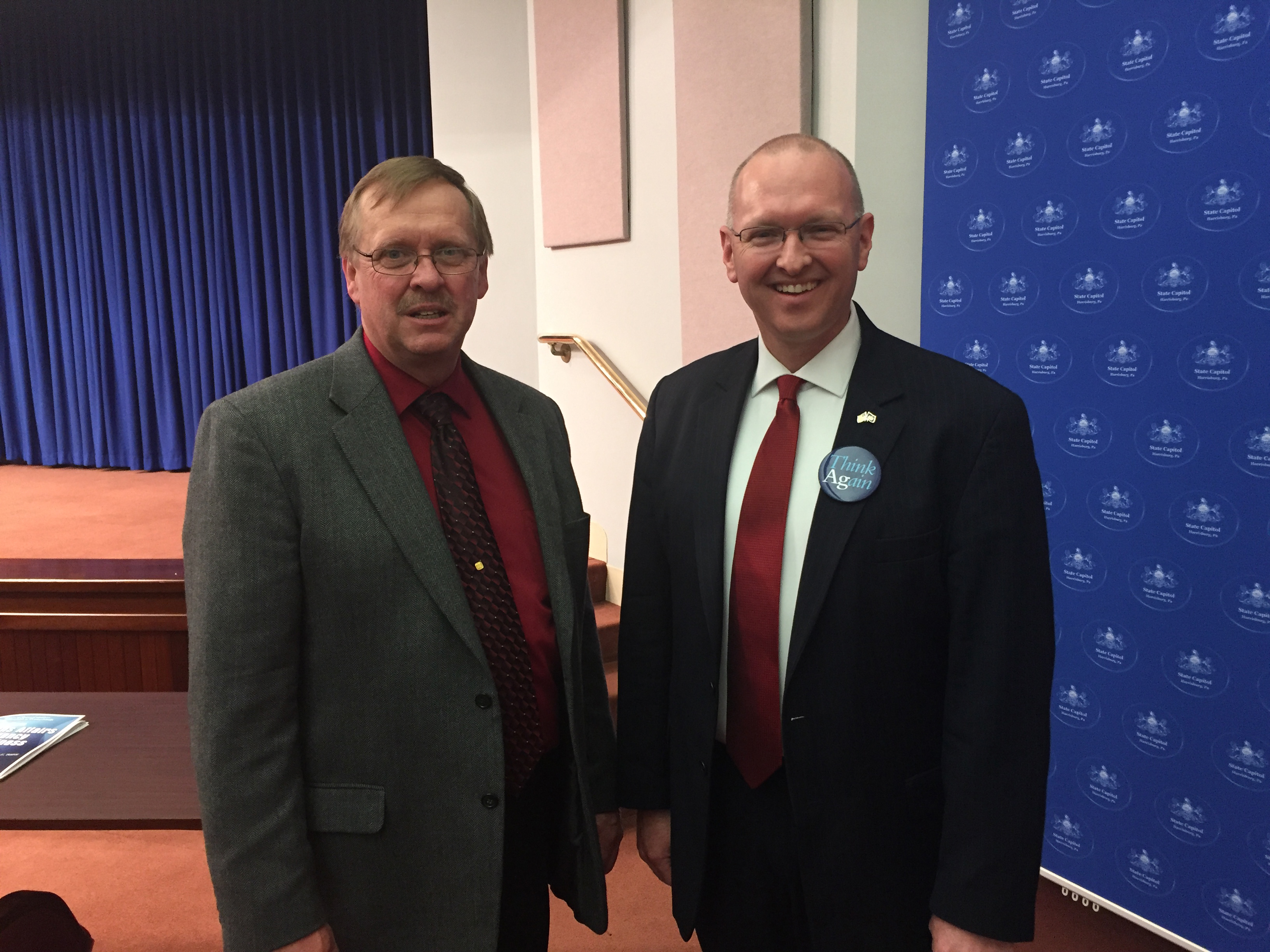Mar. 09, 2016

HARRISBURG – Rep. Martin Causer (R-Turtlepoint) today joined dozens of Penn State Ag Council members and 4-H members in calling for the restoration of more than $50 million in funding for the university’s agriculture research and extension programs.
“Pennsylvania agriculture would not be where it is today without the extensive research and outreach programs conducted by Penn State,” Causer said during a press conference at the state Capitol in Harrisburg. “There is no questioning the value of these programs to our farmers, communities and the Commonwealth’s economy…so why did Gov. Tom Wolf eliminate the funding? It’s all part of his budget strategy.
“Unfortunately, this strategy could lead to tragedy if Penn State is forced to shut down these programs. Governor – It’s time to release the hostages,” he added.
 |
| Rep. Martin Causer speaks at a press conference at the state Capitol in support of restoring more than $50 million in funding for Penn State agriculture research and extension programs. The funding was vetoed from the budget by Gov. Tom Wolf. |
Watch Rep. Causer’s press conference remarks here.
 |
| Rep. Martin Causer talks with Penn State District 3 Extension Director Don Tanner following a press conference in Harrisburg about the importance of funding for Penn State’s ag research and extension programs. |
Watch Rep. Causer’s comments after the event here.
Causer is the prime sponsor of legislation that would reinstate this much-needed funding to Penn State through a line item in the budget known as the Land Scrip Fund. This area of the budget represents the state’s commitment to a long-standing partnership among Penn State and the state and federal governments.
Matt Ehrhart, president of the ag council, said a failure to restore the funding to Penn State by May 1 will force the university to begin shutting down its agriculture operations and outreach, putting at risk an estimated 1,100 jobs within Penn State Extension and research.
In addition to the impact on jobs, eliminating the $50 million investment could cause an economic loss for the state of more than $260 million. And it would also mean an end to Penn State’s 4-H program, which teaches youth about leadership and responsibility, and helps to prepare future leaders in agriculture and beyond, such as urban community development and technology education.
“Dozens of 4-H members and their parents value this program so much they traveled to Harrisburg to show their support,” Causer said. “I commend them for their service to their communities and for getting involved in the effort to ensure funding for this important program is restored.”
Rick Roush, dean of Penn State’s College of Agricultural Sciences, also spoke at the press conference, stressing the importance of the government-university partnership. “The U.S. land grant system, which by statute links teaching, research and extension in a state, federal, county and university partnership, has contributed enormously to the success of American agriculture, jobs, health, the environment and rural life,” he said. “And it remains the envy of the world.”
Others who spoke at the press conference in support of funding Penn State’s agriculture programs included Madison Shaw, a 4-H member in Dauphin County; Brad Hollabaugh, president of Hollabaugh Bros.; and James Shirk of CEVA-Biomune Company.
Representative Martin T. Causer
67th District
Pennsylvania House of Representatives
Media Contact: Patricia A. Hippler
717.772.9846
phippler@pahousegop.com
RepCauser.com /
Facebook.com/RepCauser